Knee osteoarthritis is a progressive disease. And that means that your mobility could be compromised and your symptoms will worsen as time passes. In fact, we classify your osteoarthritis symptoms in four stages. And identifying problems at an earlier stage can help you seek earlier interventions and delay or prevent progressions.
Understanding Knee Osteoarthritis
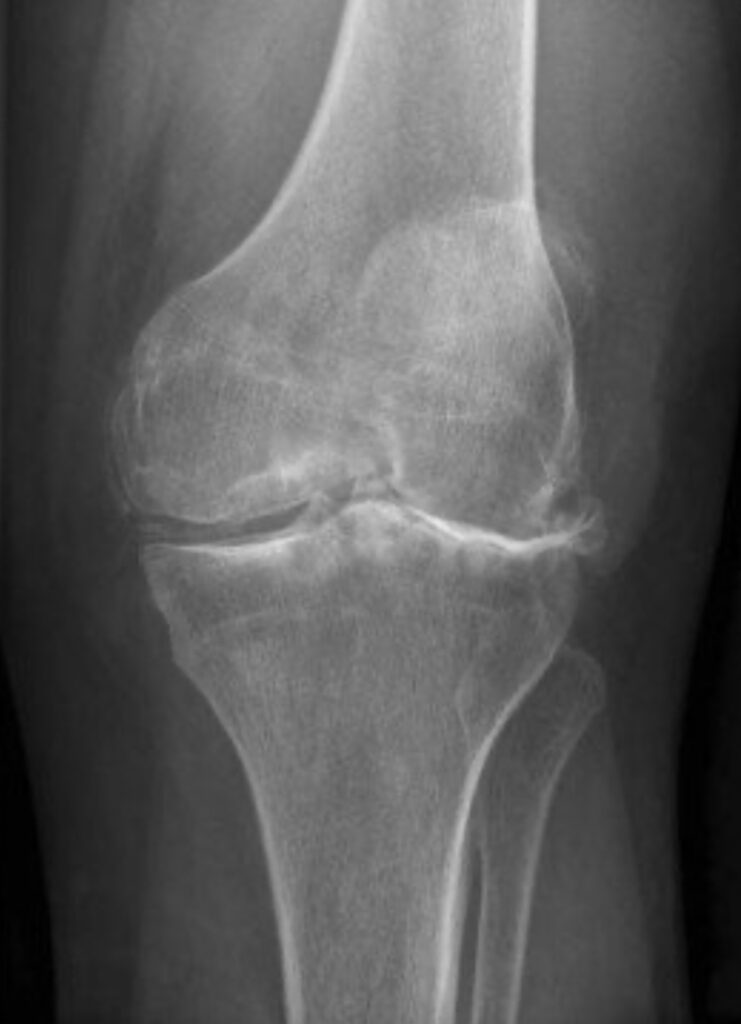
Knee osteoarthritis impacts both joint function and mobility. It is an incurable, progressive disease. Diagnoses come in stages that are dependent on symptoms and joint damage. Early intervention can help your preserve mobility; it may also help prevent or delay progression.
Stage 0
This stage means you have a healthy knee with no symptoms of arthritis. You will not show any signs of joint damage, and won't need any intervention to stay active and pain-free.
Stage 1: Minor Knee Osteoarthritis
Here, knee joints can show signs of minor wear and tear. There may be small signs of bone spur growth on joints, but most stage 1 patients don't experience knee pain. At this stage, you may wish to engage in knee health exercises, as that could help prevent disease progression.
Stage 2
Here, there will be more noticeable signs of bone spur growth on knee joints. While the space between joints should still appear normal, stage 2 knee osteoarthritis is likely to leave you experiencing joint pain and stiffness. (These symptoms will likely be worse after you exercise, sit for extended periods of time, or when getting out of bed in the morning). At this stage of progression, cartilage could also start breaking down. You may be able to manage progression and pain with lifestyle measures. However, you may need additional interventions for relief.
Stage 3: Moderate Knee Osteoarthritis
Stage 3 patients display obvious erosion of cartilage and a narrowing of the gap between bones. Joint inflammation causes stiffness and pain, and your knees may pop or make a snapping sound with walking. Pain medications may help with symptom management, but many patients will need to seek additional interventions.
Stage 4
This severe knee osteoarthritis has caused joint stiffness due to significant cartilage erosion. There will also be very little space between your bones, and decreased levels of synovial fluid will lead to pain and friction with joint movement. As a result, once your disease progresses to stage 4, it will be difficult to complete even your simplest daily tasks. In fact, many patients turn to surgical treatment at this stage. But, if you seek medical interventions for stage 2 or 3 knee osteoarthritis, our Georgia Knee Institute team can treat your condition without surgery.
GAE for Stage 2 and 3 Knee Osteoarthritis
Genicular artery embolization (GAE) is a non-surgical medical procedure. It can slow the progression of knee osteoarthritis, and is a procedure best suited for treating people with stage 2 and 3 osteoarthritis who don't find relief from other, non-surgical interventions. The procedure reduces symptoms by diminishing blood flow to the knee lining. After the GAE procedure, most patients can walk within two to three hours, and usually return to normal activities the next day. Apparent symptom relief usually appears within a few weeks?
Ready to learn more about GAE for knee osteoarthritis? We’re here to help. Click here to request an appointment at the Georgia Knee Institute.
If you want to explore non-surgical treatment for knee pain, you may be wondering if these options provide effective relief. That's especially true if you can't or prefer not to undergo a surgical procedure like a total knee replacement. So, can you say goodbye to pain without going in for an operation? Keep reading for all the important details.
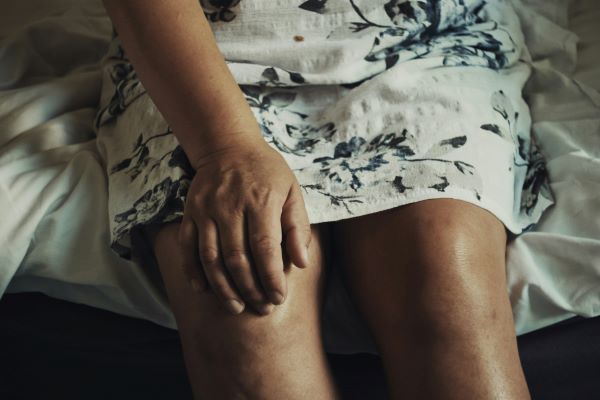
Understanding Non-Surgical Treatment for Knee Pain
Years ago, if you wanted non-surgical treatment options for knee osteoarthritis you could switch up your lifestyle or take medication. Initially, these options were quite effective; however, if your arthritis pain was moderate to severe, you were unlikely to experience relief without surgery.
Today, thanks to innovations in interventional radiology, you can treat your knee pain with minimally invasive Genicular Artery Embolization. And, with the emergence of new studies like those presented at the recent annual meeting for the Society of Interventional Radiology, we know that GAE significantly reduces pain for patients with knee pain due to osteoarthritis. In fact, we know that the procedure is especially beneficial for patients who are 50 years of age or older.
When presenting these findings, MedStar Georgetown University Hospital physician Kaitlin Carrato said, "We know this treatment has clear benefits in reducing pain and improving the ability to do everyday activities for patients. But now that we know it's particularly helpful for those over 50 years old, it may mean that those with chronic pain conditions, like arthritis, would benefit more from this treatment than patients suffering acute pain, such as an injury."
Do you want to learn more about non-surgical treatment for knee pain? Hoping to treat osteoarthritis of the knee without sleeping in the hospital or dealing with knee replacement surgery? Come learn more about the GAE procedure in Georgia by clicking here to request an appointment today.
Walking backward is trending on Tik Tok. Proponents claim it's a miracle cure for everything from running injuries to boredom when exercising. But, recently, reports have emerged that it can also help manage knee pain due to osteoarthritis. Could that be true? Keep reading to find out!

Walking Backward for Knee Pain
When you have knee pain due to osteoarthritis, you may suffer additional symptoms including, stiffness, swelling and limited mobility. As such, many people seek medical interventions such as Genicular Artery Embolization to relieve their arthritis pain without surgery.
However, since some patients prefer to manage arthritis with non-invasive lifestyle treatments, interest in walking backward is growing steadily. But how can this exercise help? Here's the story: moving backward engages different muscle groups, quickly relieving joint pressure in the knees.
Specifically, this form of movement engages the muscles in your quadriceps. And, in doing so, you can give your knee muscles a good stretch, helping boost mobility and reduce pain. Ready to give this workout to relieve arthritis pain a try? Remember that you're more likely to fall or trip when walking backward. So go slow, train indoors, and walk with supervision whenever possible.
Going Beyond the Relief of Walking Backward
Lifestyle interventions such as exercise typically work well for patients with mild to moderate knee arthritis pain. But once your condition progresses, you will likely need a medical intervention to relieve your knee pain.Ready to relieve your pain but want to avoid surgery? Click here to request an appointment at the Georgia Knee Institute to see if you're a candidate for genicular artery embolization.
You may have heard that osteoarthritis knee exercises can help manage your condition. And, while you can't cure arthritis, you can help reduce pain and stiffness by getting regular exercise. Still, if you want long-lasting relief, you may need to explore medical solutions.

These osteoarthritis knee exercises can help
Any form of exercise can help build muscle strength, taking pressure off your joints. Exercising regularly will also help you maintain your weight, mobility and balance. Just remember, before you try any of these osteoarthritis knee exercises, be sure to clear your routine with your doctor:
- Stretch every day
- Work with weights, resistance bands, or weight machines, on alternating days
- On most days, engage in moderate, joint-friendly cardio such as swimming, walking and biking
- Practice yoga or tai chi to boost balance and posture and improve your sleep quality
Safer exercise with knee osteoarthritis
When exercising with knee osteoarthritis, these safety tips will help protect your joints. First, start slowly and pay close attention to your body. Make sure trainers or fitness instructors know that you have arthritis before you train with them. And stop exercising and rest if any movement causes pain.
When getting ready to try these osteoarthritis knee exercises, prepare your body with heat. After exercise, ice your joints for up to 20 minutes. And always avoid high-impact workouts, opting for low impact movement instead.
Relieve knee osteoarthritis without surgery
While some patients manage their pain with osteoarthritis knee exercises and other lifestyle measures, those who still experience arthritis pain can find relief without surgery. How? Explore the option of Genicular Artery Embolization (GAE) in Georgia.
This is a minimally invasive procedure that relieves pain and inflammation while helping defer or avoid knee replacement surgery. Performed by our interventional radiologist in Georgia, some patients can even delay disease progression by undergoing. Ready to see if you're a candidate for this procedure? Click here to request an appointment!
Looking for the best way to treat arthritis in the knee? Today, there are many treatment options that relieve osteoarthritis-related knee pain. But for those who want to choose a non-surgical treatment option, genicular artery embolization or GAE can provide relief with shorter recovery periods and without hospital stays. Want to see if you're a candidate for this procedure? Keep reading to find out.
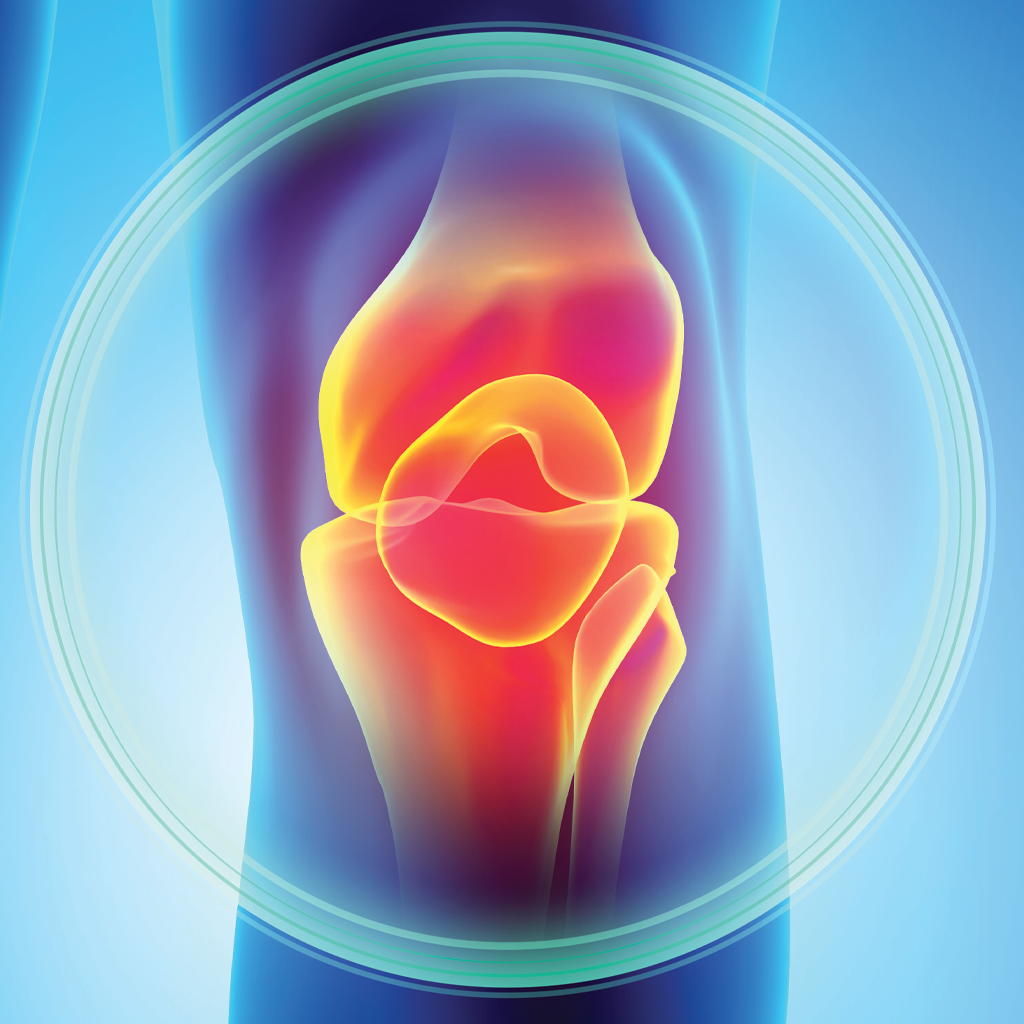
What is the Best Way to Treat Arthritis in Knee?
Because knee osteoarthritis is both progressive and degenerative, your condition and symptoms will get worse unless you seek treatment. For some patients, that could be as simple as reaching and staying at an optimal weight, while getting plenty of exercise. But even with these lifestyle changes, many patients will still experience painful arthritis symptoms.
Now, in the past, many of those patients would choose to find relief with knee replacement surgery. But today, there's a less invasive option: GAE, an alternative to that knee replacement that offers the best way to treat arthritis in knee while avoiding surgery.
What is Genicular Artery Embolization?
This procedure offers a surgical alternative for relieving knee osteoarthritis. During the procedure, we insert a small catheter into the femoral artery, guided via X-ray imaging from a tiny entry point made in the groin area. Once in place, we use the catheter to deposit tiny embolic material to the arteries to limit blood flow and reduce inflammation and pain in your knee. While not everyone is a GAE candidate, many believe that this is the best way to treat arthritis in knee without surgery. Want to see if GAE can relieve your knee osteoarthritis pain? Click here to request an appointment
If you have osteoarthritis of the knee and you want to find relief, there are knee replacement alternatives. And, due to medical advancements, many relieve pain without surgery. Today, we'll explore several options gaining popularity in 2024.
Genicular artery embolization (GAE): Proven knee replacement alternatives
GAE is a non-surgical knee replacement alternative that our Interventional Radiologists perform at the Georgie Knee Institute. The procedure relieves arthritis pain and inflammation by restricting blood flow to the affected knee joint lining. Backed by science, this 2020 study shows that GAE can effective relieve or reduce moderate to severe osteoarthritis knee pain. And it may prevent disease progression and limits on mobility.
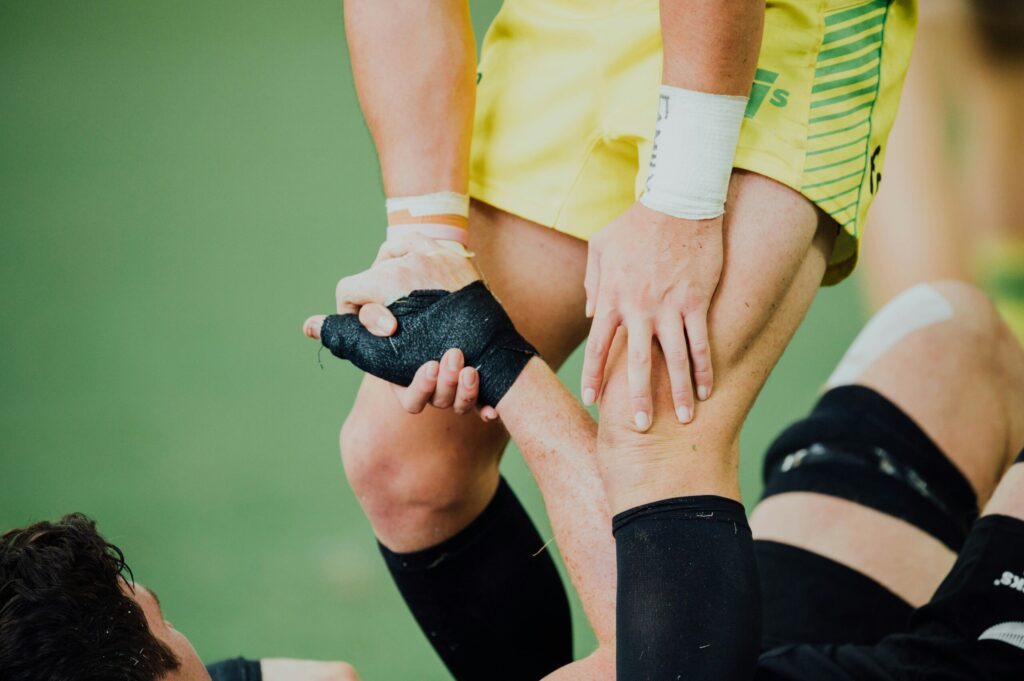
Injections for Arthritis Knee Pain
Some patients prefer injectible knee replacement alternatives. One option involves injecting hyaluronic acid to the inflamed joint, providing lubrication and shock absorption to reduce pain. However, the Arthritis Foundation does not endorse this treatment due to limited research.
The same is true for dextrose solution injections, which are supposed to fight osteoarthritis knee pain. through the power of regenerative medicine. In theory, this injection sends reparitive blood flow to the knee, reducing pain and stiffness. But, again, it is not Arthritis Foundation endorsed.
Now, patients with mild to moderate arthritis knee pain may reduce pain and boost mobility with Platelet Rich Plasma (PRP) injections. With results that last up to one year, this injection stimulates your body's own healing ability. However, more research is needed to confirm its efficacy for knee pain due to arthritis.
Knee replacement alternatives backed by research
We know you want to relieve your knee pain without having surgery. But we also know that you want knee replacement alternatives that have been well researched. And that's exactly what we provide! Click here to request an appointment at the Georgia Knee Institute and discover if you're a candidate for GAE!
Many older athletes are finding it harder to stay active because of pickleball knee pain. Now, this game is much gentler on the joints than other racket sports. However, when athletes have osteoarthritis in the knees, staying in the game can be very painful. Thankfully, GAE, or genicular artery embolization, can get you back into action.

Understanding Pickleball Knee Pain
Many pickleball players get hurt due to age-related risks. And that makes sense because Paddletek reveals that more than 50% of the 36.5 million US pickleball players are over the age of 55. And an additional 30% of players are over the age of 65.
Of course, some of the aches and pains associated with the sport are due to knee injuries such as muscle tears or ligament strains. (And the risk for those injuries increases if age has already put mobility limits on your joints.) Now, some of these injuries can be avoided with proper form, lots of stretching, and supportive athletic gear. But when pickleball knee pain is caused by osteoarthritis, many players can find from an alternative knee replacement procedure called GAE.
This procedure was a game-saver for 80-year-old Patrick Shruben, who recently discussed undergoing GAE in 2021 with UCLA Health. The older athlete needed to relieve his pickleball knee pain, but “did not want to sit in pain for months after surgery.” After researching his relief options, Shruben chose GAE, saying, "My treatment was pretty amazing. I walked without knee pain the next day.”
Even better? His GAE procedure was very effective, as Shruben is still feeling great more than two years later. Even now, he brags, “Here I am at 80, and I’m doing things my own children can’t do.”
Choosing GAE at the Georgia Knee Institute
Ready to say goodbye to pickleball knee pain? Do you want osteoarthritis knee pain relief without surgery? Click here to request an appointment. When you come into the office, we'll determine if you're a good candidate for GAE and come up with your customized treatment plan.
Ready to relieve osteoarthritis' chronic pain and swelling surgery? You need an alternative knee replacement, whether you're simply not a surgical candidate, or prefer to delay a knee replacement due to your age. Of course, we can't cure your arthritis. But we can offer relief for pain, stiffness and swelling. And we can help keep you mobile and active, without going under the knife. Here's how.
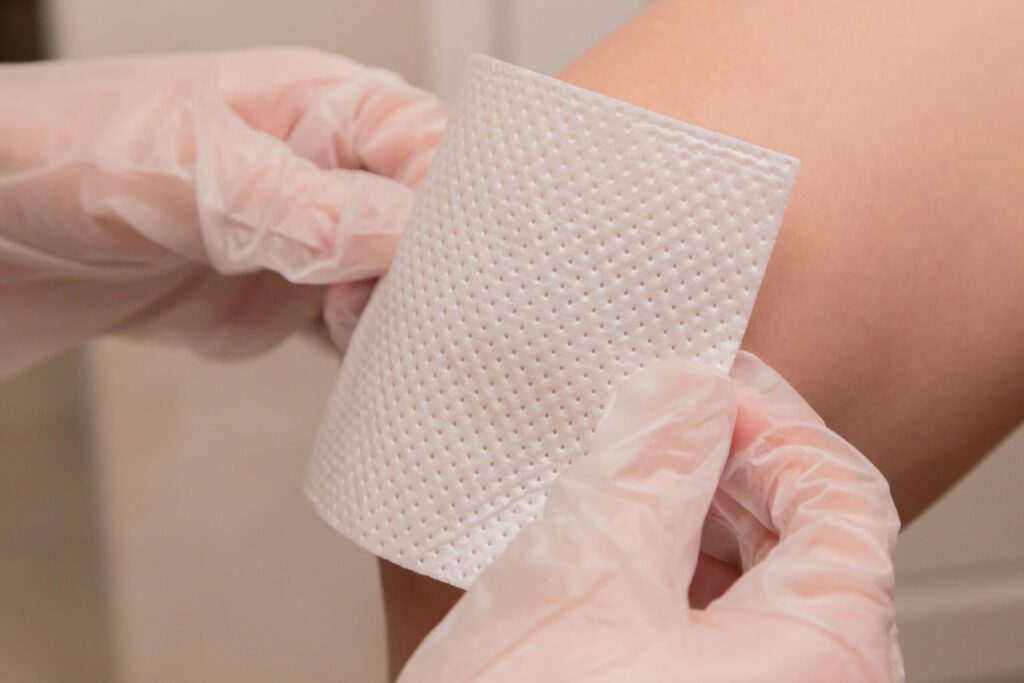
Lifestyle Remedies for Knee Pain
When osteoarthritis knee pain is mild, you may find relief from noninvasive interventions. You can begin by losing weight, if necessary, to relieve pressure on the joints in your knee and to help prevent further damage to your cartilage.
You should also try to stay active, either through physical therapy or with low-impact exercises like walking or swimming. Finally, over-the-counter medications can help relieve inflammation and pain. But they may cause additional side effects, so be sure to clear this option with your healthcare provider.
Alternative Knee Replacement: Medical Interventions
If you want to temporarily relieve osteoarthritis knee pain without surgery, you may benefit from knee injections of cortisone or hyaluronic acid. These interventions can relieve inflammation and lubricate your joints to preserve mobility, but effects don't usually last more than a few months.
Luckily, there's an alternative knee replacement that offers at least a year of pain relief: genicular artery embolization, or GAE. This procedure relieves osteoarthritis knee pain by blocking blood flow to the joint. This reduces pain and inflammation, and slow arthritis progression, helping you delay knee replacement surgery.
Ready to see if GAE is the right alternative knee replacement for you? Patients with moderate to severe pain who are in good health, haven't found relief from non-invasive treatments, and are 40-80 years of age are considered good GAE candidates. Click here to request an appointment with the Georgia Knee Institute to discuss next steps!
In the Georgia Knee Institute we relieve osteoarthritis-related knee pain with genicular artery embolization, or GAE. This minimally invasive procedure reduces your pain and improves mobility by cutting off blood flow to the lining of your knee, getting rid of inflammation there. Now, many patients come in to this office, seeking relief without invasive surgery. But, before scheduling their procedure, they do have one key question: what's the genicular artery embolization recovery time? Here's what you need to know.

Genicular Artery Embolization: Recovery Time After Your Procedure
The length of your GAE procedure will be around 1-2 hours. (Explore the ins and outs of this procedure here.) Immediately after your procedure, you will spend a few hours in the recovery room under observation. Most of our patients will be able to walk within two to three hours of the procedure's completion and should be able to go home on the same day.
The day after GAE, you'll be able to resume light activities, and within two or three days, you'll be ready to get back to your normal routine. (You should still avoid heavy activity for about two weeks while you recover from GAE.) At that point, the results of your procedure, including arthritis pain relief, should be noticeable.
How Long Does it Take to Recover From Genicular Artery Embolization?
Any side effects associated with GAE are minor, including mild bruising or slight changes to the appearance of your skin. These effects should be resolved, and you should be able to resume all activities, within two weeks of GAE. After that, your genicular artery embolization recovery should be complete, and you will start to appreciate the benefits of your procedure.
These include,
- Reduced swelling and pain in your knee
- Less stiffness
- Functional improvements in mobility and joint movement
In conclusion, after your genicular artery embolization recovery, you'll experience osteoarthritis knee pain relief for up to a full year. As such, it's an ideal treatment for patients with moderate to severe arthritis pain who wish to delay or avoid full knee replacement surgery. Ready to see if this treatment will work for you? Click here to request an appointment with our knee specialists in Georgia!
Living with arthritis in the knee? Seeking treatment for arthritis knee pain? Before you explore your options, it's important to understand arthritis pain. So, let's dive in together.
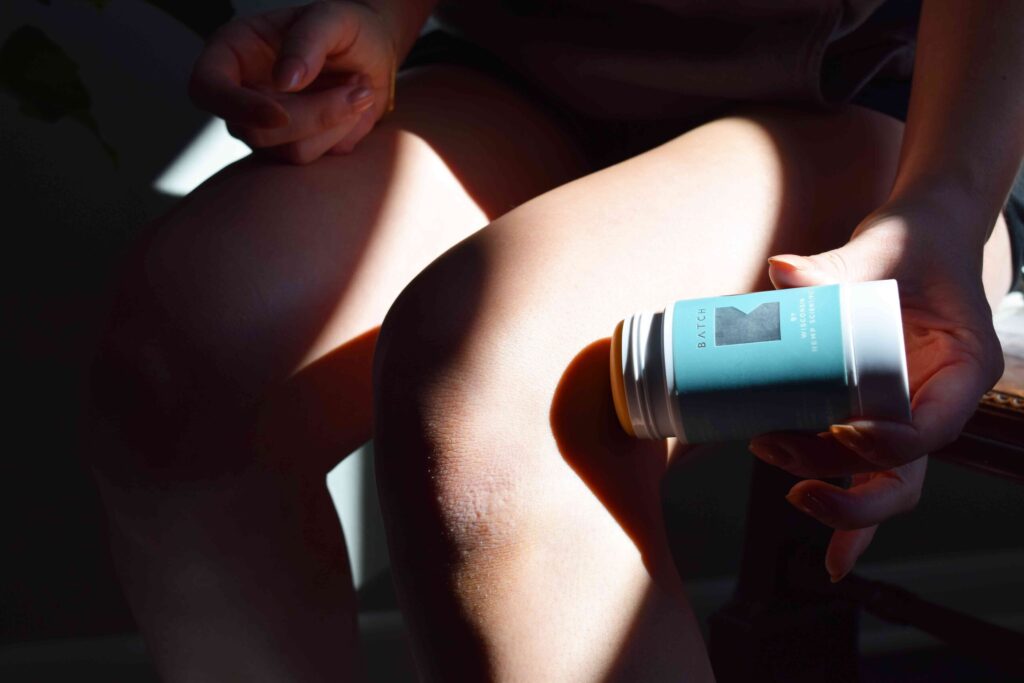
Understanding Knee Arthritis
Arthritis is a disease that causes swelling and tenderness in one or more of your joints. If you have knee arthritis, joints in one or both of your knees may be affected, leading to pain, stiffness, and limits on mobility. Osteoarthritis is the most common form of disease in your knees. And, while it's progressive and incurable, the right treatments can help relieve your pain.
Is There Treatment for Arthritis Knee Pain?
Again, you can't cure osteoarthritis. But you can preserve your mobility, relieve pain and prevent or delay progression by seeking early intervention.
Some people find relief with heating pads and/or over-the-counter non-steroidal anti-inflammatories. Physical therapy and regular exercise can help you stay active and mobile. But, if those treatments fail to offer sufficient relief, and you want to delay or avoid surgery, or simply aren’t a surgical candidate, genicular artery embolization (GAE) in Georgia can provide an effective alternative to surgical treatment for arthritis knee pain.
What is Genicular Aretery Embolization?
GAE is a non-surgical procedure to slow osteoarthritis progression in the knee. Minimally invasive, and lasting about two hours, this treatment allows you to avoid hospitalization and general anesthesia.
During the procedure, our interventional radiologists administer anesthetic through a small puncture opening in the groin. Then, they use that opening to insert a thin catheter to the femoral artery, directing it to the knee’s genicular artery via X-ray image guidance.
Once in place, we release small embolic materials into your vessels, limiting blood flow to the knee lining and thereby reducing pain, inflammation and other knee arthritis symptoms. Once complete, we extract the catheter, monitor you for a few hours, and send you home. The next day, you can resume normal activities. And, within weeks of the procedure, you should experience noticeable arthritis pain relief.
Choosing GAE for Treatment of Arthritis Knee Pain in Georgia
Ready to see if you’re a candidate for GAE in Georgia? This treatment is for you if:
- You've been diagnosed with knee osteoarthritis
- Have pain and stiffness that's moderate to severe
- Aren't getting relief from medication or conservative treatments
- Are between 40 and 80 years of age, in general good health
Do you meet these criteria and are want relief from osteoarthritis knee pain? Click here to request an appointment with our experts at the Georgia Knee Institute.






